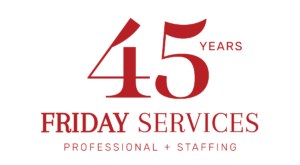
An interesting post by Douglas LaBier Ph.D. in Psychology Today, “Feeling Bored at Work? Three Reasons Why and What Can Free You” suggests that workplace boredom can be as stressful and as damaging as overwork—perhaps more so.
According to Forbes, 71% of workers are “not engaged” or “actively disengaged” from their work.
This signals boredom!
And, boredom, it turns out, can be a dangerous and disruptive state of mind that damages your health – and even cuts years off your lifespan.
Boredom shows up as lack of enthusiasm, low productivity or lack of participation. It’s the feeling of dread one gets when thinking about going to work each day. It’s watching the clock, pretending to be busy but getting nothing done, coming in late or not at all.
We all get bored.
But try to find a job, any job, that doesn’t have boring aspects.
Those we admire the most and who make what they do look easy, have to complete a lot of grueling (and boring!) exercises in order to make their achievements look effortless. Vocalists have breathing exercises. Athletes have drills. Pianists have finger exercises and scales. Actors have readings.
Shortly after I began my career in sales, my sales manager left town for a week-long conference. She left me with a training manual, 4-inches thick, and instructed me to stay in the office while she was away and read the entire training manual.
After only a couple hours into the manual, I found myself falling asleep. Since I would rather do something than read about it, I decided after several failed attempts to get through the manual that I had had enough. I grabbed the map of my sales territory and out I went to make sales calls, without a clue about how to actually make a sales call. I didn’t care. Being bored is far more stressful to me than being fearless.
If you find yourself in a boring job, you’re not alone. Nearly half the workforce experiences boredom and chalks it up as “just part of the job”.
Modern life provides a nearly overwhelming amount of sensory bombardment in the form of noise, crowds, traffic, clutter, and the demands of ever-present electronic devices. Over stimulation is the new norm. Without it, we don’t know what to do with ourselves!
In stark contrast, your job can seem to offer not enough mental stimulation, and that, just like sensory overload can be quite stressful.
Since most people work to live rather than the other way around, we must find a way to cope. The basic solution to boredom is to keep your mind stimulated.
Consider this –
- Are you bored all day or only with certain aspects of your job? If you’re bored all day, you’re not challenged enough. Your job may not be a good fit for you. One of my clients was searching for an outside salesperson. A young lady in her Accounts Payable Dept. was interested in the job, but my client was apprehensive about offering her the role. I tested the candidate for outside sales ability and discovered they had a sales superstar wasting away in AP! With only a little training, this newly appointed salesperson became their top sales producer. This happens often. If you feel that your talents aren’t being utilized, consider the possibility that you may be in the wrong job in the right company. What other job in your company are you most interested in? Speak up! If you don’t promote yourself, no one else will.
- Do you enjoy your work but just don’t have enough to keep you busy all day? I can relate to this. My first job out of college was with a local attorney. There were only the two of us in the office. He would be in court for days at a time and I was alone in the office with nothing but deafening silence and a rotary phone that I would beg to ring. Since it’s doubtful that your job description includes, “aimlessly browse the internet for hours at a time,” you don’t want to find yourself occupying your time with mindless distractions or the temptation to interrupt co-workers. When you no longer feel challenged, speak up! Ask to take on assignments from outside your immediate department if necessary, but ask for more. Being challenged is a great motivator. Lack of challenge, on the other hand, can quickly turn you into an underachiever.
- Are your expectations too high? Since we are, in many ways, defined by our occupations, it’s only natural that we expect our jobs to be sources of constant stimulation and fulfillment. While we may think our job is nothing more than a source of income, the reality is we expect our work to fulfill more than that singular need. To feel fulfilled, we also need the camaraderie of co-workers and a sense of belonging. We need to feel appreciated, respected, accomplished.
That’s a tall order.
What human being could deliver on those expectations consistently and not crumble under the pressure? Likewise, a job can’t reasonably be expected to deliver on each need all the time.
Boredom is a state of mind. But, generally, a lack of meaning at work is a common refrain among today’s workers.
If you hate your job, hate your co-workers, hate your life; take stock ─ the only difference between a rut and a grave is the depth.
And, by the way, you can dig out of one but not the other ─ there’s that.
By: Linda Zumstein

